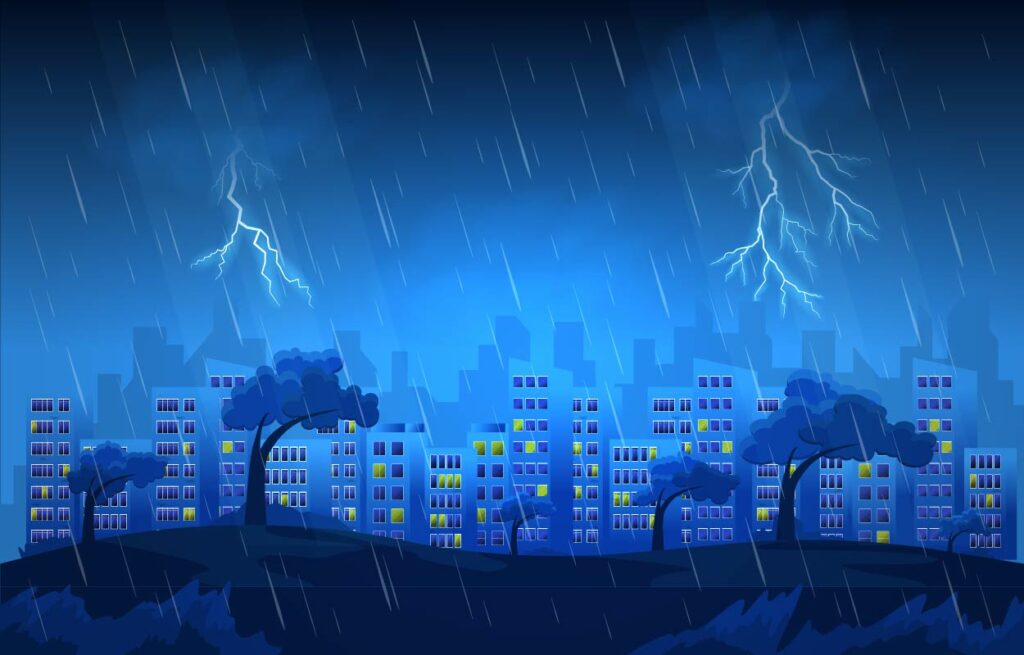“When thunder roars, stay indoors.”
Lightning poses a significant weather-related emergency that can occur during thunderstorms. It's an electrical discharge that happens between clouds or between a cloud and the ground, causing a sudden and powerful flash of light. Lightning strikes are not only visually striking but also hazardous due to their potential to cause injury or damage. For older adults, the dangers associated with lightning include increased risk due to mobility issues and potential health complications.
Emergency Preparedness Tips for Lightning:
- Stay Indoors:
- Seek shelter indoors, away from windows, and avoid contact with electrical appliances or water sources.
- Unplug Electronics:
- Prevent potential damage by unplugging electronic devices. Stay away from metal objects or structures to minimize the risk of electrical conductivity.
- Seek Shelter:
- If you find yourself outdoors, seek refuge in a sturdy, enclosed building or a hard-topped vehicle to shield yourself from lightning strikes.
- Avoid Open Areas:
- Steer clear of open fields, high ground, water bodies, and isolated trees. Lightning is more likely to strike in these exposed areas.
- Remain Indoors:
- Encourage older adults to remain inside until at least 30 minutes after the last observed lightning strike. This ensures safety during any lingering electrical activity.
- Create a Lightning-Safe Zone:
- Designate a safe area within your home, away from windows, where family members can gather during a lightning storm.
- Emergency Kit:
- Prepare an emergency kit with essential supplies, including water, non-perishable food, flashlight, and any necessary medications.
- Emergency Contacts:
- Have a list of emergency contacts readily available. Ensure that all family members, especially older adults, are familiar with the emergency plan.
- Weather Updates:
- Stay informed about weather conditions by monitoring reliable sources. Use weather apps or a NOAA Weather Radio to receive timely updates.
- Avoid Plumbing and Bathing:
- Refrain from using plumbing fixtures and avoid taking showers or baths during a lightning storm, as lightning can travel through plumbing systems.

